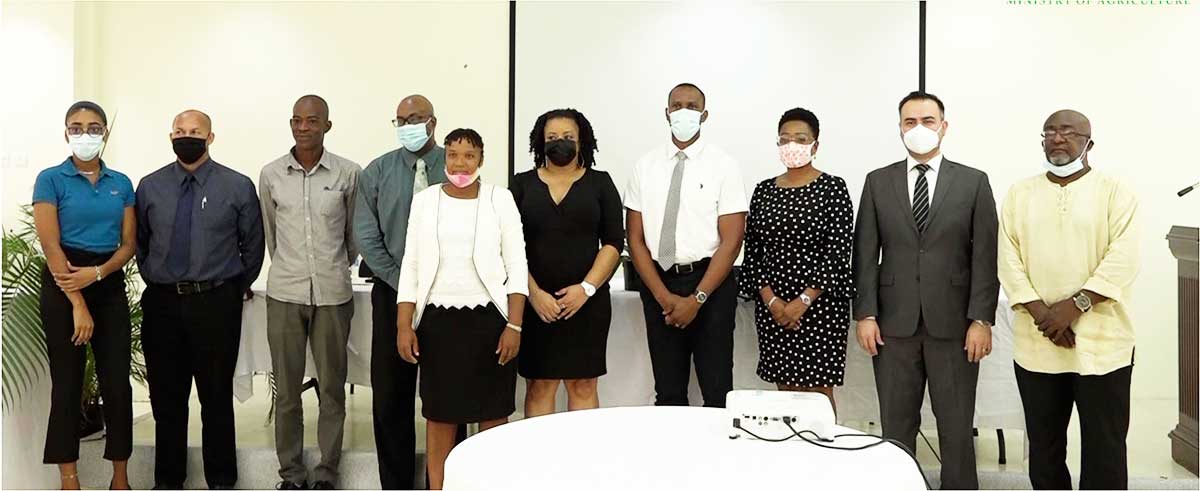A cluster of government departments have collaborated to roll out an improved ‘School Feeding Programme’ in an effort to enhance student’s overall nutritional intake and wellbeing.
In a recent development, the Ministries of Agriculture, Health, and Education signed a Memorandum of Understanding (MOU) to improve Saint Lucia’s National School Feeding Programme and school gardens.

According to ministry officials, the school feeding programme aims to reduce hunger and enhance food security, in keeping with the United Nations (UN) – Sustainable Development Goals (SDGs) to help eradicate poverty and malnutrition.
Permanent Secretary (PS) in the ministry of education, Michelle Charles asserted that the school feeding programme will not only benefit students, but also parents, farmers and communities.
“We have noted the impact that insufficient or poor nutrition has had on our students,” said Charles.
“We are familiar too, with the absence of scenarios where the absence of the school feeding programme correlate closely with high absentees amongst schools,” the PS added. “And we are also cognizant of what can happen to our school age children , who slip through the ‘education cracks’, in part, due to the lack of food and fall prey to social ills.”
Charles stressed that the implementation of initiatives, such as these “have a far reaching impact and augurs well for our communities and society as a whole.”
This MOU is supported by the Mexico-CARICOM-FAO Initiative-Cooperation for Climate Change, Adaptation and Resilience in the Caribbean.
National Project Coordinator of the Food and Agriculture Organization (FAO) School Feeding Programme, Cherry Anne Smith provided an over view of the initiative, taking into account the effects of covid-19. The FAO supports participating countries in their efforts to protect livelihoods, ensure adequate access to health foods, and to ensure sustainable development of natural resources.
“The sustainable School Feeding Programme initiative is based on activities, such as; the involvement of the education committee, adaptation of adequate and healthy school meals, implementation of educational school gardens, improvement of school kitchens and storage areas, direct purchases of product from local farmers and school gardens,” the FAO official explained.
She said the initiative will also take into account, the “improvement of that national school feeding policy in St Lucia …and health assessment of students.”
Charles noted: “Our understanding is that school feeding in St Lucia, as elsewhere, has long been established and recognized as an important instrument for facilitating learning, especially for poor and vulnerable children.”
The FAO official asserted: “Healthy and well-nourished children learn better.”
Representative from the Embassy of Mexico, Carlos Ivan Gonzalez Osuna underlined the Mexican government’s commitment to aid St Lucia and to deepen diplomatic ties. He disclosed that a total of $5.5 million has been allocated to the programme, “which benefits 14 countries in the region, including the six (6) Eastern Caribbean States.”










![.[L-R] Parliamentary Representative for Castries Southeast, Lisa Jawahir & Talk show host, Timothy Poleon](https://thevoiceslu.com/wp-content/uploads/2026/02/Lisa-Jawahir-Timothy-Poleon-380x250.jpg)
![Public Service and Utilities Minister Stephenson King delivered remarks [Photo credit: VP]](https://thevoiceslu.com/wp-content/uploads/2026/02/Stephenson-King-380x250.jpg)

